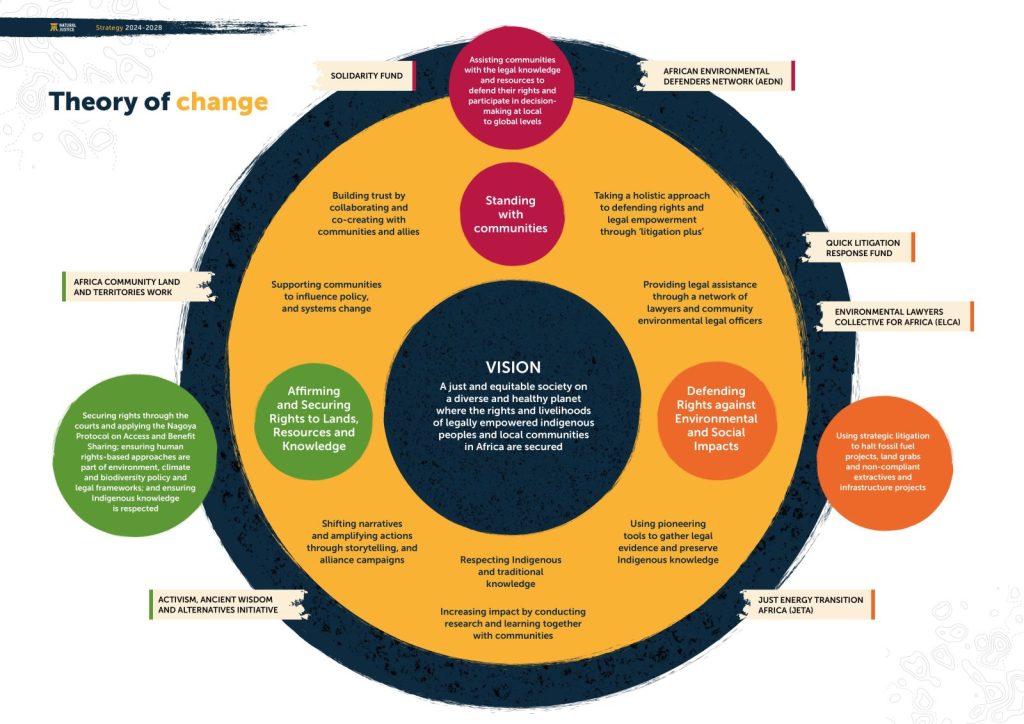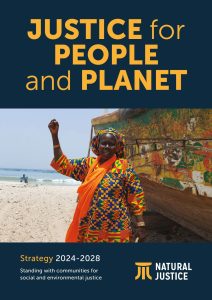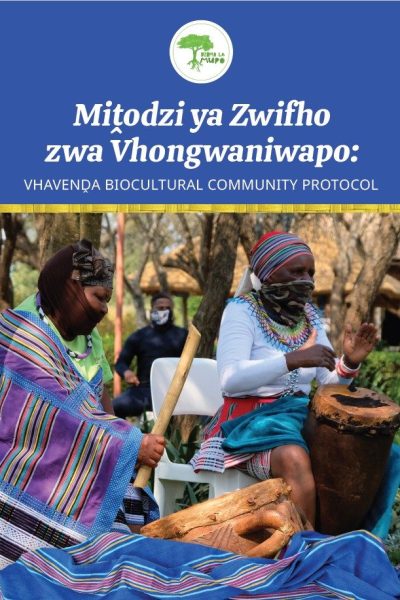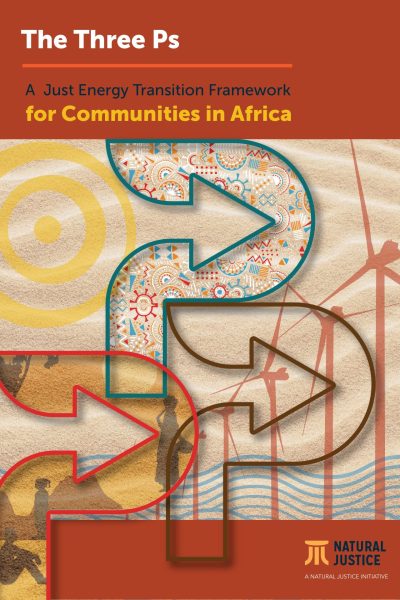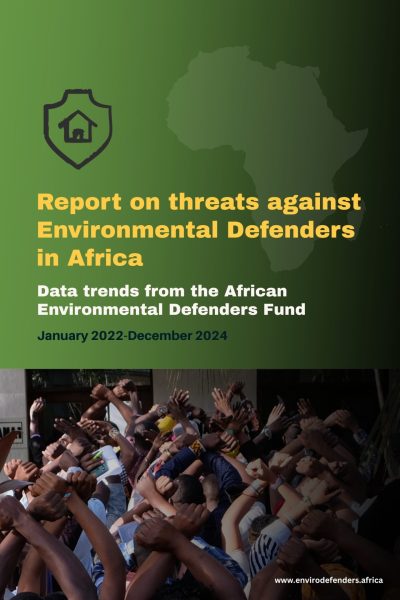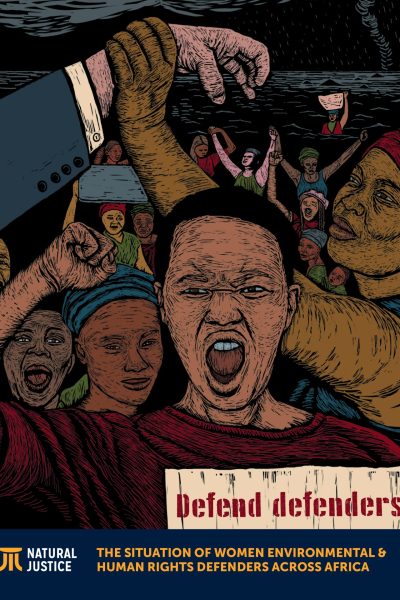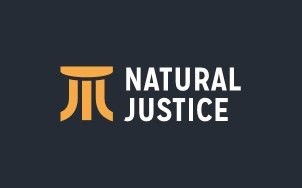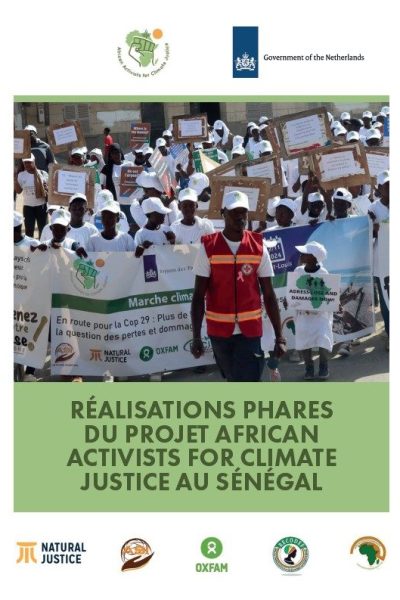Justice for people and planet
Since we were founded in 2007, Natural Justice has worked with many communities across the African continent seeking to defend their rights as well as to secure control over their land and resources. We continue to see the vital importance of the legal empowerment of communities. If people know the law, they are in a position to use it, improve it, and challenge it when the need arises.
Natural Justice’s 2024–2028 strategy will continue to place legal empowerment at the centre of our work, bringing together litigation, research, policy influencing, and campaigning in alliance with movements, coalitions, and impacted communities.
Looking at legal trends, climate-related litigation is continuing to grow in importance. Several communities and legal environmental organisations, including ours, have successfully gone to court to stop harmful projects and rights violations.
Beyond litigation, we will continue to assist communities in securing land tenure, which provides a systemic opportunity for achieving social justice. Land ownership can be hugely transformative, offering the economic security to increase a communities’ resilience in the face of economic and climate shocks. It also offers cultural security, enabling people to live their traditional ways of life.
At least a quarter of the total global land area is traditionally owned, managed, used, or occupied by Indigenous Peoples.3 Securing Indigenous Peoples’ and local communities’ ownership of their land, however, requires taking several steps, including formally recognising and enabling the environmental management role played by them.
To that end, governments must transform the conservation paradigm towards rights-based approaches and redirect biodiversity finance to Indigenous and locally-led conservation projects.
We have to make big economic and political system changes to alter the global course of development. Creating the conditions for locally-led alternative solutions that balance economic and environmental outcomes is an approach that can influence the future pathways of countries, such as those in Africa, that are under huge pressure to advance socio-economic development. Ambitious development agendas do not by default need to push for an expansion of extractivism and large-scale infrastructure development; rather, they can be grounded in alternative economic models that work within planetary boundaries.
In implementing our new strategy, we will act in solidarity with impacted communities and wider civil society to call for these and other changes needed to transform local, national, and global systems. Above all, we will continue to listen to Indigenous knowledge holders and to women and young people as they shape and lead the way.
Read our strategy to find out more about our work, as well as our theory of change.
FRENCH AVAILABLE
